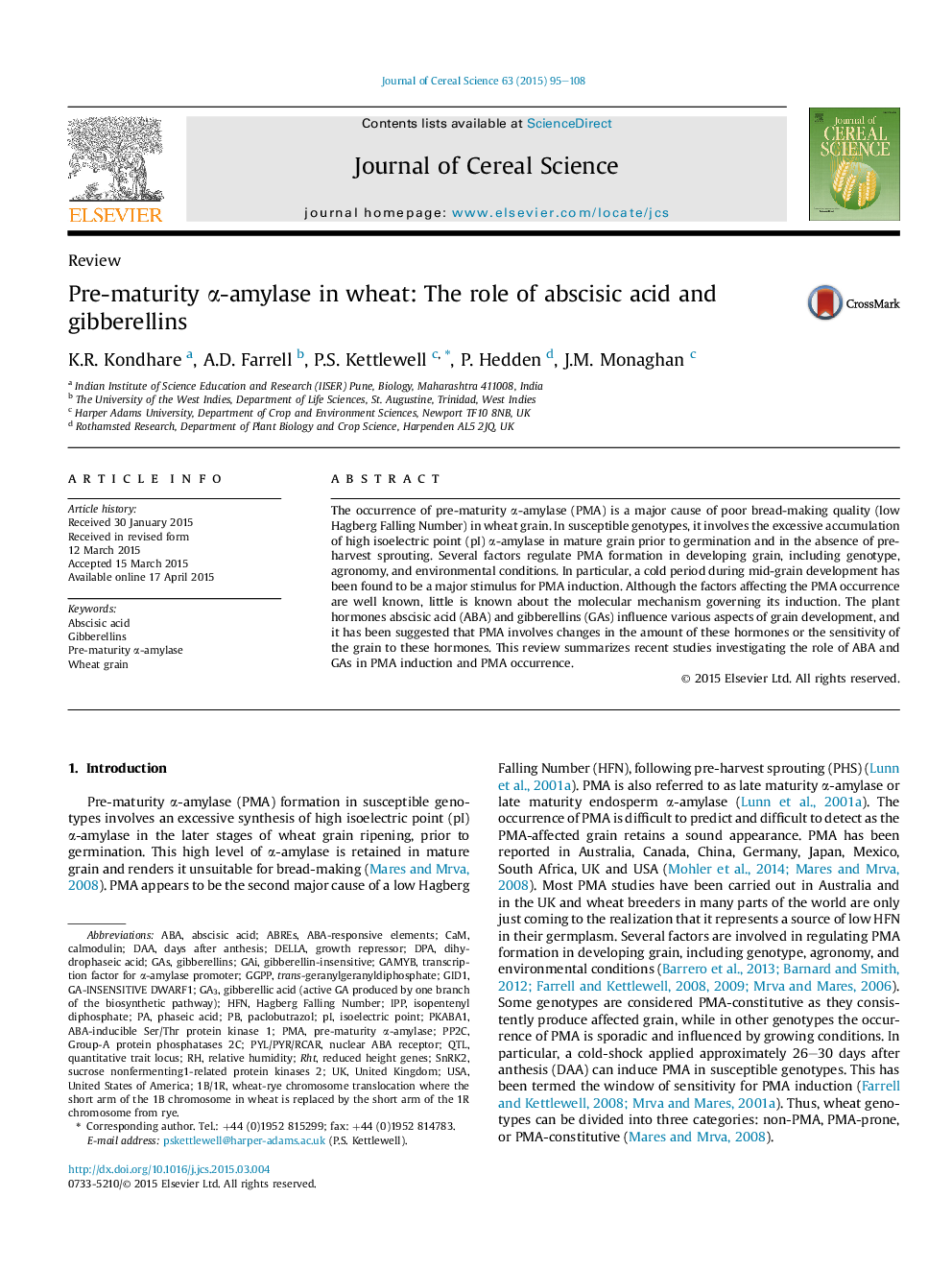| Article ID | Journal | Published Year | Pages | File Type |
|---|---|---|---|---|
| 4515684 | Journal of Cereal Science | 2015 | 14 Pages |
•PMA formation in wheat grains is a major cause of poor bread-making quality.•A cold period during mid-grain development is a major stimulus for PMA induction.•ABA and GAs influence various aspects of grain development.•It was suggested that PMA involves changes in ABA/GA levels or the sensitivity.•Recent studies show that both GA levels and GA-sensitivity are associated with PMA.
The occurrence of pre-maturity α-amylase (PMA) is a major cause of poor bread-making quality (low Hagberg Falling Number) in wheat grain. In susceptible genotypes, it involves the excessive accumulation of high isoelectric point (pI) α-amylase in mature grain prior to germination and in the absence of pre-harvest sprouting. Several factors regulate PMA formation in developing grain, including genotype, agronomy, and environmental conditions. In particular, a cold period during mid-grain development has been found to be a major stimulus for PMA induction. Although the factors affecting the PMA occurrence are well known, little is known about the molecular mechanism governing its induction. The plant hormones abscisic acid (ABA) and gibberellins (GAs) influence various aspects of grain development, and it has been suggested that PMA involves changes in the amount of these hormones or the sensitivity of the grain to these hormones. This review summarizes recent studies investigating the role of ABA and GAs in PMA induction and PMA occurrence.
